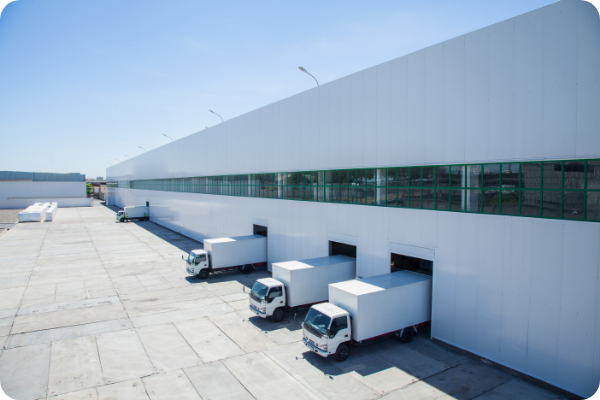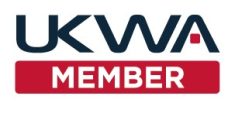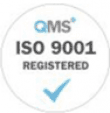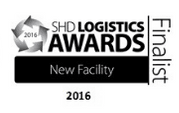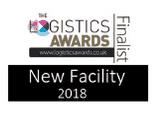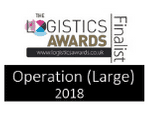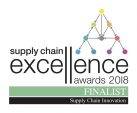Outsourcing transport logistics to specialist service providers is a now common practice. Running your own fleet of trucks and vans is probably not viable. Outsourcing allows you to focus on your core business, freeing up valuable time to focus on getting your product to market more quickly and driving revenue. But how do you find the most cost-effective third-party logistics solution for your business?
The last few years have delivered price increases caused by a perfect storm of COVID-19, driver shortages, fuel, and other input cost factors. Some companies have managed to mitigate these issues through short-term agreements, while others have been involved in expensive long-term contracts. If your contracts are ending during 2024 or you are not bound by any formal agreements, now is the time to consider your options.
Market pricing
There are indications that the market is softening despite recent spikes. The TEG Road Transport Price Index provides a monthly overview of the price-per-mile cost for vehicles used in the UK’s haulage and courier industry. According to TEG, the overall price per mile for haulage and courier vehicles increased to 123.3 in September, up from 119.4 in August. With an increase of 3.9 points, this is the largest jump since December 2022. However, year on year, the overall price was down 3.5 points, with courier prices also 4 points lower than last September. More information here
https://transportexchangegroup.com/road-transport-price-index/
What types of service do you need?
The most common types of outsource partners are third-party logistics companies (3PLs) that provide a variety of warehouse and distribution services, including freight forwarding and transport. For example, a specialist transport 3PL can be set up to handle consignments such as hazardous or perishable goods using a dedicated fleet. 3PLs can also handle full or part-loads and returns by combining volumes across multiple users. For an all-inclusive service, a dedicated fourth-party logistics (4PL) partner can integrate operations and provide all your supply chain management and logistics services. A 4PL will aggregate the services of multiple 3PLs and provide the IT ‘glue’ that makes it a seamless operation.
Read more on how to overcome challenges when outsourcing to a 3PL.

Selecting the best logistics partner(s)
The selection process can be lengthy as it includes assessing many factors. The first step is to define your objectives. What exactly are you trying to achieve? If is to improve efficiencies and save costs, set clear and measurable financial goals and operational objectives. There are many new players in logistics outsourcing in every industry sector. Researching the market takes time and often expertise is needed to evaluate vendors and to establish who or what is the best solution.
The tender process
A Request for Information (RFI) can be used to establish which service providers can potentially fulfill your needs. You can investigate the services they provide, get references from similar customers, and find if there could be a fit. A Request for Proposal (RFP) or Request for Quote (RFQ) is the tender document that defines the Scope of Work. It details your exact requirements and is sent to those companies that can provide the services you need. Questions must include many about more than just pricing: technical expertise, capacity, regulatory compliance, sustainability, and I.T. compatibility. Adequate time for tender submission and responses should be given.
The evaluation process:
1.
Pricing
Pricing models can be complex. Establish which offer provides the best value for the exact services you need. You may need to take professional advice to understand their fee structure. Are they offering an open book relationship or a fixed price contract on a cost-plus basis with escalations? Open book contracts allow you to see into their business and understand their pricing and margins.
2.
Technical expertise
Cloud-based software solutions have become the norm for financial and operational transactions in supply chain management. Can the service provider integrate its solutions easily with your existing systems and processes? This is often the area where there is the potential for problems and delays in implementation. Most business communications, either transactions or person-to-person activity are now conducted electronically. Do they have a secure system of communication, i.e. an online portal?
3.
Monitoring performance
Key performance indicators (KPIs) are used to measure performance and must be agreed between the parties and stated in the contract. Examples are:
- On-time delivery % – i.e., % of late deliveries experienced/ how late?
- Number of loss or damage claims per x shipments
- Admin accuracy – % of error-free documentation
Does their technology provide you with real-time dashboards and the reporting capabilities you need to monitor performance?
4.
Supply risk
Risks can be operational, financial/legal, and impact your brand or reputation. Who carries that risk? The cost of assuming or passing on risk makes a difference to the costs and the working relationship you will have with your outsource partner.
You may need help.
SCCG provides a full service to clients to manage their logistics tender process from defining the requirements through to final negotiation and contracting. We
- Manage the request for information (RFI) process to create a shortlist of key service providers to receive the RFP, if required
- Develop the Scope of Work and assemble the RFP.
- We help you to evaluate the comparative bids enabling you to understand the value proposition and the risks involved with each provider.
- We will engage with you and the selected supplier in the negotiation and contracting phase advising you on what to expect and how you can drive further value for your business. A service level agreement (SLA) is a document, often as an addendum to the contract, that defines how the relationship will work in practice.
Following selection and contract award we will support the implementation planning and review the operation to ensure what was promised is being delivered.

